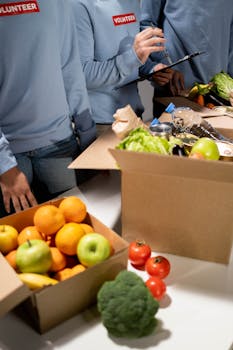
**
Boost Your Bone Health After 25: 8 Power Foods to Combat Osteoporosis & Build Stronger Bones
Maintaining strong bones is crucial throughout life, but particularly after age 25 when peak bone mass is often reached and the risk of bone loss begins to increase. While genetics play a role, your diet significantly impacts bone density. This means making smart food choices is key to preventing osteoporosis and enjoying active, healthy aging. This article highlights eight powerhouse foods that can significantly contribute to your bone health journey. We'll delve into their nutritional benefits, how they support bone density, and how to incorporate them into your daily diet.
Why Bone Health Matters After 25
After 25, bone remodeling—the continuous process of bone breakdown and renewal—slows down. This makes it more important than ever to prioritize bone health to prevent future problems like osteoporosis and fractures. Osteoporosis, a condition characterized by weak and brittle bones, significantly increases the risk of fractures, especially in the hip, spine, and wrist. These fractures can lead to pain, disability, and reduced quality of life. Early intervention through diet and lifestyle changes is crucial for mitigating this risk. This is why focusing on bone density after 25 is so important.
8 Foods to Supercharge Your Bone Density
Here are eight nutritional powerhouses proven to support strong bones and combat bone loss:
1. Leafy Green Vegetables: The Calcium Champions
Leafy greens like kale, spinach, collard greens, and turnip greens are packed with calcium, a vital mineral for building and maintaining strong bones. They also offer vitamin K, which plays a crucial role in bone metabolism and potentially reduces fracture risk. Adding a daily serving of these nutrient-dense vegetables to your smoothies, salads, or as a side dish is an easy way to boost your calcium intake.
- Pro Tip: Choose a variety of leafy greens to maximize your nutrient intake.
2. Dairy Products: A Classic Source of Calcium and Vitamin D
Milk, yogurt, and cheese are excellent sources of calcium and often fortified with vitamin D, another essential nutrient for bone health. Vitamin D helps your body absorb calcium efficiently, ensuring it's properly utilized for bone building. Choosing low-fat or fat-free options can help manage calorie intake while still reaping the bone-boosting benefits.
- Pro Tip: Opt for plain yogurt and add your own fruits and sweeteners to control added sugars.
3. Salmon: A Rich Source of Vitamin D and Omega-3 Fatty Acids
Fatty fish like salmon are rich in vitamin D and omega-3 fatty acids, both vital for bone health. Vitamin D, as discussed, aids calcium absorption. Omega-3s have anti-inflammatory properties that may help protect against bone loss. Aim for at least two servings of fatty fish per week.
- Pro Tip: Consider canned salmon as a convenient and cost-effective option.
4. Tofu: A Vegetarian's Bone-Building Ally
Tofu, a soy product, is a good source of calcium, especially if fortified. Soybeans also contain isoflavones, plant compounds that may help improve bone density and reduce bone loss, particularly in postmenopausal women.
- Pro Tip: Experiment with different tofu preparations—from stir-fries to crumbles—to add variety to your meals.
5. Almonds: A Calcium and Magnesium Powerhouse
Almonds are a fantastic source of calcium and magnesium, another crucial mineral for bone health. Magnesium assists with calcium absorption and plays a role in bone formation. A handful of almonds daily can be a delicious and convenient way to boost your intake of these essential nutrients.
- Pro Tip: Include almonds in your yogurt, salads, or trail mix for a healthy snack.
6. Beans and Lentils: Plant-Based Protein and Minerals
Beans and lentils are excellent sources of plant-based protein and various minerals beneficial for bone health, including magnesium, potassium, and zinc. These contribute to overall bone strength and structural integrity.
- Pro Tip: Add beans and lentils to soups, stews, salads, or enjoy them as a side dish.
7. Fortified Foods: An Easy Way to Boost Intake
Many foods, such as cereals, plant-based milks, and orange juice, are fortified with calcium and vitamin D. Checking nutrition labels can help you identify these options and easily increase your daily intake of these vital nutrients.
- Pro Tip: Choose fortified options that are also low in added sugar and unhealthy fats.
8. Oranges: Vitamin C for Collagen Synthesis
While not directly a bone-building mineral, vitamin C is essential for collagen synthesis. Collagen is a crucial protein forming the structural framework of bones. A deficiency in vitamin C can impair bone formation. Include oranges, or other citrus fruits, as part of a balanced diet.
- Pro Tip: Get vitamin C from a variety of sources including bell peppers and strawberries.
Lifestyle Factors for Optimal Bone Health
Besides diet, regular weight-bearing exercise, such as walking, running, and weight training, is crucial for building and maintaining bone density. Sunlight exposure helps your body produce vitamin D. Consulting with a healthcare professional or registered dietitian can provide personalized guidance on bone health strategies.
Conclusion: Building a Stronger Future, One Bite at a Time
Maintaining strong bones after 25 requires a proactive approach. By incorporating these eight bone-boosting foods into your diet and adopting a healthy lifestyle, you can significantly reduce your risk of osteoporosis and enjoy a healthier, more active life for years to come. Remember, consistent effort pays off when it comes to long-term bone health. Start today and build a stronger, healthier future for yourself.



















